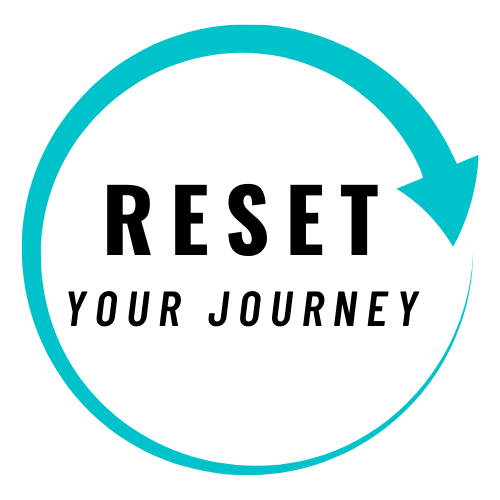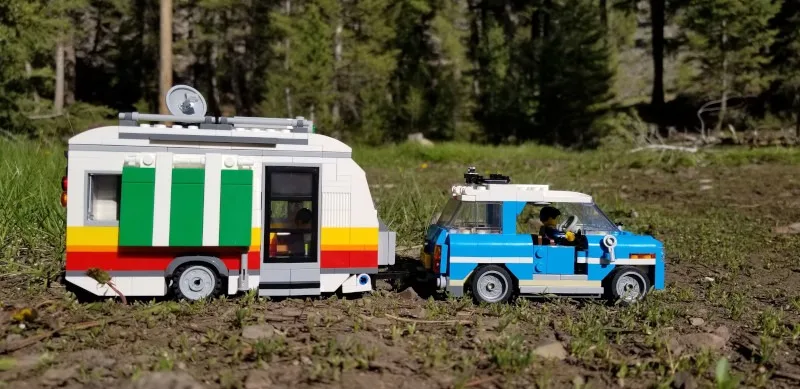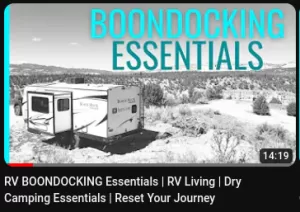Last Updated on 05/04/2024 by Glynn Willard
What Are The Things To Know Before Buying A Travel Trailer?
There is an essential list of criteria to know and understand when shopping for a travel trailer whether it’s your first travel trailer or fourth.
I’ve divided this list into three aspects.
- What to know and understand before you shop for your travel trailer.
- The things you should learn before your first road trip.
- What you’ll learn during your RV life on the road, i.e., being thrown to the wolves.
Please do yourself a favor and take the time to learn these aspects to avoid an expensive financial mistake on an RV purchase.
Taking this time will also allow for a more enjoyable RV adventure.
Also, remember that the RV of your dreams may not be the most suitable for the RV lifestyle you envision (or can afford).
In fact, a travel trailer may not even be the perfect type of RV for you.
Yes, I know, a lot to consider!
Onward…
What You Need To Know Before Shopping For A Travel Trailer
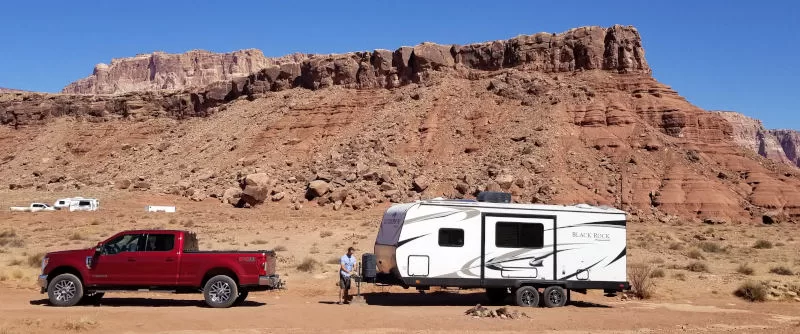
It doesn’t matter if it’s a new RV or a used rig, knowing and understanding this list will save you time and money.
-
Tongue Weight Of The Camper Trailer
It’s more than just a good idea, it’s crucial you know the tongue weight of the trailer you’re considering.The tongue weight dictates the type of tow vehicle required to safely tow your travel trailer.
A trailer with a tongue weight of 800-1000lbs should not be towed with a half-ton truck. There are exceptions to the rule, but they are limited.
Any reputable travel trailer manufacturer will disclose the tongue weight for both its dry weight and fully loaded weight.
This is not something to disregard.
-
GVWR Of Your Tow Vehicle
Despite marketing claims that the “billion” pounds a half-ton truck can tow, it comes down to the particular trucks GVWR.So yes, perhaps the engine can handle a heavy load, but there’s a good chance the half-ton’s GVWR will be exceeded.
Manufacturers do a disservice in their marketing of towing capacities.
The typical cargo capacity of a half-ton is 1500lbs. In that number, you must factor in the passengers, gear, fuel and tongue weight of the trailer.
Those numbers add up fast!
When in doubt, equip yourself with a super-duty 3/4 or 1-ton truck. It will tow better, safer, and stop better.
-
Cargo Carrying Capacity Of The Travel Trailer
It doesn’t matter the RV type, all recreational vehicles have a specific cargo-carrying capacity for each unit produced.Large heavy-duty RV’s have a high CCC, but most travel trailers and class C’s have a lower CCC than most expect.
If you plan to take long trips or RV full time and you have a large family, a 1000lb CCC will not be enough.
Exceeding the CCC over stresses the axles, bearings, and RV tires.
This is a hazardous situation!
Make sure you consider your cargo needs before falling in love with a trailer that appears perfect but has a low CCC.
-
The Style Of Camping You Envision
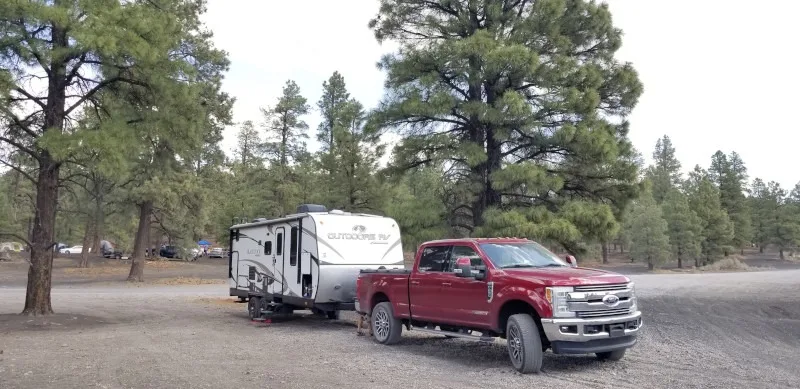
Maybe your RV life vision is either staying in National Parks, RV parks, or boondocking entirely (like us).Regardless, some trailers are better suited for each of these visions.
If RV ownership means staying in state parks and RV parks, you don’t need to look at travel trailers that have a higher ground clearance.
Nor do you need a lot of solar panels, batteries, or a big inverter.
But if you see yourself semi-overlanding and boondocking in remote areas, you’ll need to consider a completely different travel trailer.
Instead, you’ll focus on large holding tanks, high-ground clearance, heavy-duty axles, good insulation, and a self-sustaining power system.
Save yourself time and anguish by knowing your how, why, and your vision of RV life before shopping.
-
The Number Of People That Will Be Sleeping In The RV
The number of people who will be using your trailer at one time will dictate the floor plans you should consider.Believe me when I say the sleeping setup is important.
Imagine a long trip and having to set up beds and break them down every day. It gets old really fast!
Do yourself a favor and shop for a trailer that has a designated bed that remains in place for each person.
-
The Amount Of Storage Space Necessary For Everyone On Board
There needs to be enough space for each person to conveniently store their possessions.You’ll also need space for your outdoor gear, tools, and leveling equipment.
When shopping, consider how much storage space is available for your needs on the units you’re considering.
The additional cost of adding additional exterior storage areas counts against the CCC and should be avoided on travel trailers.
-
Freshwater & Waste Water Tank Sizes
If you plan to spend any time boondocking and not using full hook-up sites, you’re going to want larger holding tanks.Frequent trips to the dump station are about as much fun as spending time with your cousin Eddie!
The larger the capacity, the better.
But note that freshwater added to your freshwater tank usually counts against your CCC.
So consider the number of people using the systems.
We carried 100 gallons of water and the four of us could stay in one boondocking location for a maximum of ten days.
And we were super conservative.
-
The Type And Amount Of Insulation In The Trailers Your Pursuing
Quality insulation in a travel trailer is important for several reasons.
- Regardless of the outdoor temperature, good insulation allows for indoor comfort without expending a lot of energy (HVAC).
- If you find yourself venturing into a region with cold nights or really hot days, good insulation will be a life saver.
- It helps deaden the sounds from outside the trailer for more peace and quiet.
Moving good insulation to the top of your list is something you will not regret in the long-run.
I wrote an article about the best insulated travel trailers highlighted in the box below.
-
New Rigs Vs Older RVs
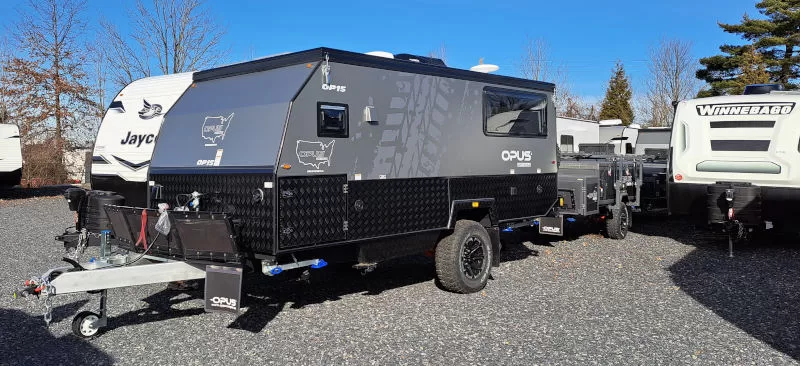
You will likely get your best deal on a well-built older RV.In fact, the best RV for you might just be an older, out-of-production model that aligns with your price range and needs.
Most new RVs have “kinks to iron out” and are in for warranty work a lot.
If you’re a first-time RV buyer, consider buying used, so that the kinks are worked out by the previous owners.
Honestly, I believe some of the older rigs are better built than the new RVs coming off the line.
-
JD Powers NADA Value Of The Trailers You’re Considering
Once you have your eye on a few trailers to go investigate, plug them into JD Powers NADA calculator.You’ll need this information when you’re ready to negotiate with either a dealership or private seller.
-
The Type Of Warranty Included With The Trailers You Like
If you’re buying new, take the time to ask about and review the warranty for the trailers which you’re interested.A few questions to ask:
- How long is the warranty?
- What does it cover?
- What doesn’t the warranty cover?
- Which service centers can do the warranty work?
If you’re buying a used travel trailer, it may no longer have a warranty.Bonus if it’s still under warranty!
-
Join A FB Forum For The Specific Trailer(s) Your Considering
Say what you like about Facebook, but we’ve found the RV specific FB pages to be a gold-mine.They’re full of seasoned owners who know the rigs inside and out.
You need permission to join most, but they always accept individuals who are considering buying that kind of RV.
You can quickly get a feel for all the nuances, issues, hacks and pros about the RV.
And most of it is unbiased since it’s a platform for problem solving and learning.
-
Learn The Average Yearly Repair And Maintenance Expense For The Trailer
This is information you can learn from the FB group or by doing an online search.You’ll get realistic numbers from the FB group.
Whatever that number is, make sure you can afford the annual maintenance cost of the trailer before jumping in.
A lot of things can go wrong with RVs and you need to be prepared for the extra cost.
-
Get To Know The Reputation Of The RV Dealerships Your Considering
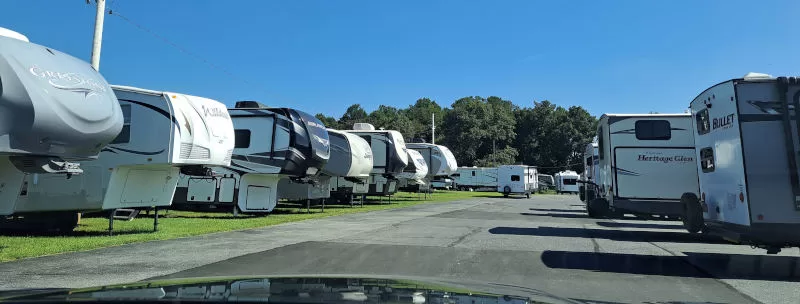
Not all RV dealerships are create equal. No doubt, you already know this fact.Do your research and if the dealership seems shady, or has really bad reviews, or bad customer service, consider driving further to a dealership with a better reputation.
Also, make sure you ask how their service department works and what the average wait time is for an appointment.
On a side note, be careful when attending an RV show.
I realize they’re exciting and a great way to sample a lot of trailers at once, but they’re also a great way to get roped into a deal you may regret.
-
If You’re Buying A New Or Used Get A Full Inspection
This is especially true if you’re buying a used recreational vehicle of any kind.It’s not free, but it’s money well spent.
A good inspector can find a red flag, water damage, or other issues often overlooked by a first time buyer.
A quick Google search will find plenty of options in your area.
What To Learn Before Your First RV Road Trip
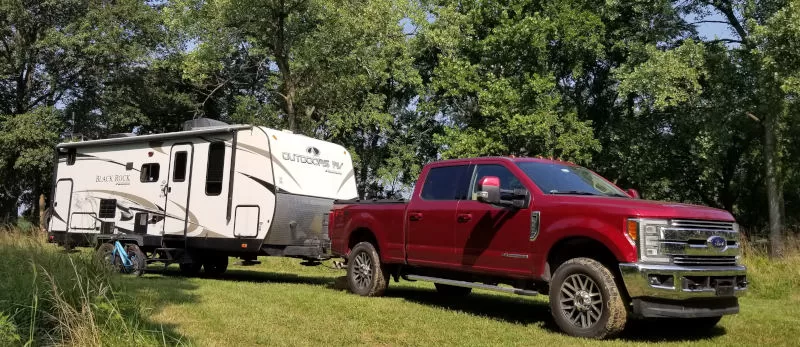
Some of the things on the list require you to already have the RV in your driveway. At least it’s easier.
-
Jack It Up And Change A Tire
The bottom line, tow a trailer long enough and eventually you will have to change a tire or check/repack the bearings.Practice jacking the trailer and removing the wheels while you’re in a controlled environment (your driveway).
When the inevitable happens, you’ll be glad you’re already familiar with how the trailer jacks up and how to change the tire.
It’s also a good opportunity to get to know the underside of your RV.
-
Learn About Wheel Bearing Maintenance
Travel trailers need regular maintenance, and wheel bearings are something that cannot be ignored.Some bearings need addressing every 10,000 miles. That comes quickly if you travel a lot or may have already passed in a used RV.
I did an article on an overview of bearing maintenance.
-
Understand How Or When To Schedule Suspension Maintenance
Until we had unusual tire wear on one of our trailer tires, we didn’t understand the relevance of the suspension system.When we removed most of the suspension system and found the bushings had deteriorated creating a misalignment, we were floored!
After replacement and proper maintenance of the wet bolts, the problem went away.
This entire concept was foreign to me when I was shopping for travel trailers.
The lessons learned will never be forgotten and hopefully passed on to you so that you understand the proper maintenance of your suspension system.
-
Get To Know Your DC & AC Electrical Systems
There are a lot of variations in the electrical systems in travel trailers.It might be as simple as a couple of deep-cycle house batteries, a charge controller, and a solar panel to keep them charged.
Or you might have the same setup with an additional gasoline generator.
We often see the question, “Why don’t my outlets work in the trailer?”
An understanding of the difference between your AC and DC system helps clarify the answer to that question.
-
Take The Time To Learn How Your Solar Panels, Batteries, & Inverter Works
If you spent more money, you’ll likely have a battery bank of lithium, a large inverter, and solar panels.Regardless, they all work differently and will require you to spend some time with the user manuals and using the different systems before hitting the great outdoors.
We’re seasoned RVers and our new Roadtrek campervan’s electrical is so quirky, it confused us.
I had to spend some extra time reading the manual and reverse-engineering the electrical schematics before it made sense.
You, too might be in the same situation.
-
Understand Your Propane System An How It’s Filled
Most travel trailers use removable canisters for propane.Figure out how to remove the propane tanks on the trailer you’re interested in or already purchased and make sure this is a doable situation for you.
-
Establish And Understand A DIY Maintenance System
Take the time to learn about all the systems in the trailer you’re interested in purchasing or already purchased.Having a preventative maintenance system can save you a lot of money in the long run.
And most of the maintenance can be done by you at home or while traveling.
The article below will help get you started.
Not Sure What You Need For Your RV?
What You’ll Learn During Your RV Life On The Open Road
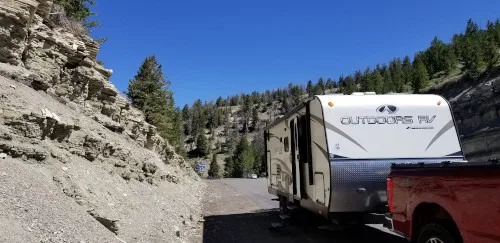
For many things in life, there’s no better way to learn and master something than by just doing.
We threw ourselves to the wolves on the below list and it was the best way to quickly learn.
-
Backing Up Your Trailer
You can practice in a parking lot to get the basics down, but you will not perfect the process until you do it over and over in unique situations while traveling.And that’s okay!
I had never towed anything before purchasing our travel trailer.
Throwing myself to the wolves and failing until I get it right is a rule I live by.
You don’t need to focus on this aspect while shopping for a trailer. You have enough on your plate.
The skills will come over time while traveling.
-
Leveling Your Travel Trailer
Just like above, this is also a skill set you will continue to improve the longer you travel.You can learn a lot from our video and article: 6 Easy Tips To Level Your Travel Trailer (On A Slope)
-
Finding Campgrounds And Boondocking Locations
If you plan on boondocking a lot while traveling, we have a lot of great resources.It’s kind of our shtick.
Start by reviewing our articles and videos on finding boondocking locations and proper practice.
Then put the skills into practice while traveling and you’ll have a system down before you know it!
What Are Some Of The Best Travel Trailers
There are a lot of manufacturers and different types of number pull trailers.
Rather than go over what the best travel trailers (in our experience) are, I’ll refer you to the article below.
Perhaps it will help guide you on where to start your search on RV Trader for the perfect rig.
Wrapping Up What To Know Before Buying A Travel Trailer
When you feel comfortable with all of the criteria discussed above, you’re ready to take your “why” and vision for your camping style and apply everything to finding a good match for your needs.
Please don’t make such a big decision without spending some time understanding written above.
Do this right and you’ll find the best option, have no regrets, and look forward to many years of the best times!
Are you ready to embrace the RV travel trailer lifestyle?
Meet the author.
We appreciate any help in bringing you great content. Donate or buy us a coffee on our Ko-Fi site. Or subscribe to our YouTube Channel.
Thank you so much for being here!

